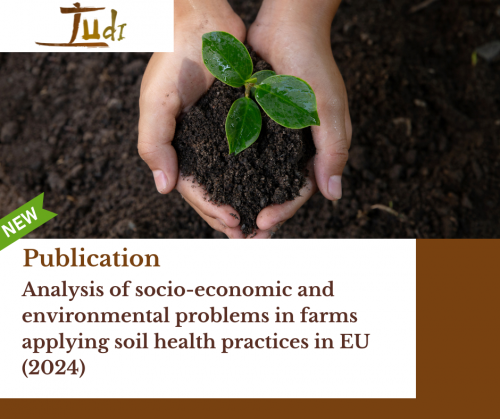TUdi article: Analysis of socio-economic and environmental problems in farms applying soil health practices in EU
The article “Analysis of socio-economic and environmental problems in farms applying soil health practices in EU” was published in the Bulgarian Journal of Agricultural Science, and is available in the TUdi library.
Agriculture plays a crucial role in the European Union's economy, making significant contributions to both its socioeconomic and environmental sustainability. Numerous studies have highlighted the importance of sustainable farming and soil health practices in tackling modern challenges. The socioeconomic impacts of soil health practices are especially significant, as they have the potential to affect livelihoods, employment trends, and community dynamics.
This study focuses on researching the socioeconomic and environmental challenges faced by farms implementing soil health practices in six EU-TUdi project partner countries: Austria, Bulgaria, Czech Republic, Hungary, Italy and Spain.
The report involved creating a farm typology related to soil health by using two statistical methods: Principal Component Analysis (PCA), which was used to identify four key socioeconomic factors that evaluate the problems farms face in terms of both socioeconomic and environmental aspects, and Cluster Analysis (CA), which grouped farmers into homogeneous categories based on similar characteristics.
As a result, four distinct farm types were identified based on their approach to soil health.
